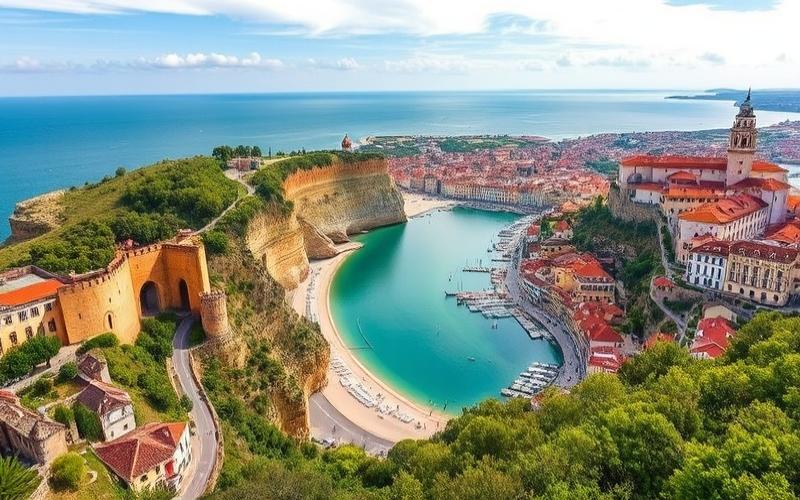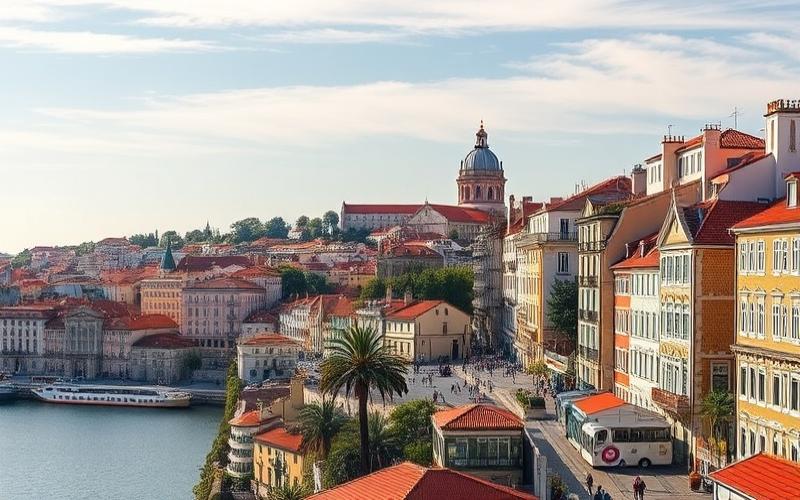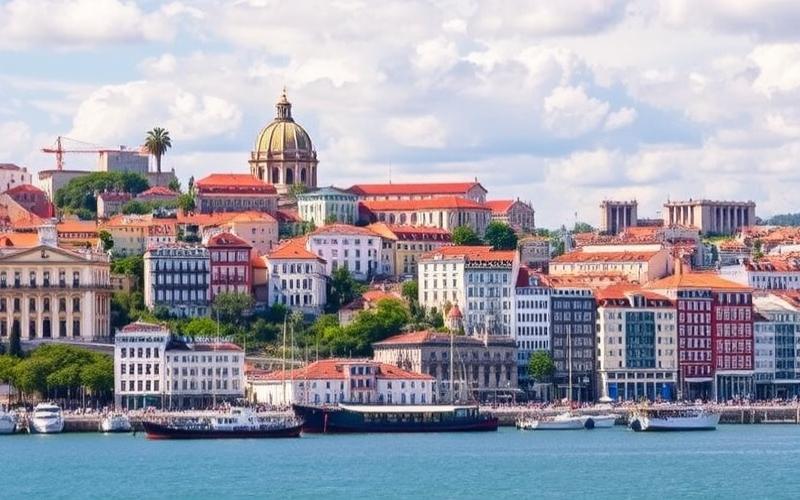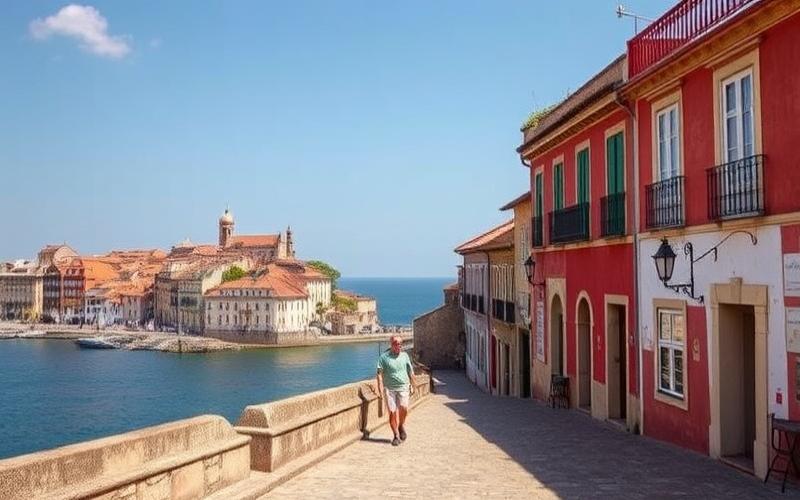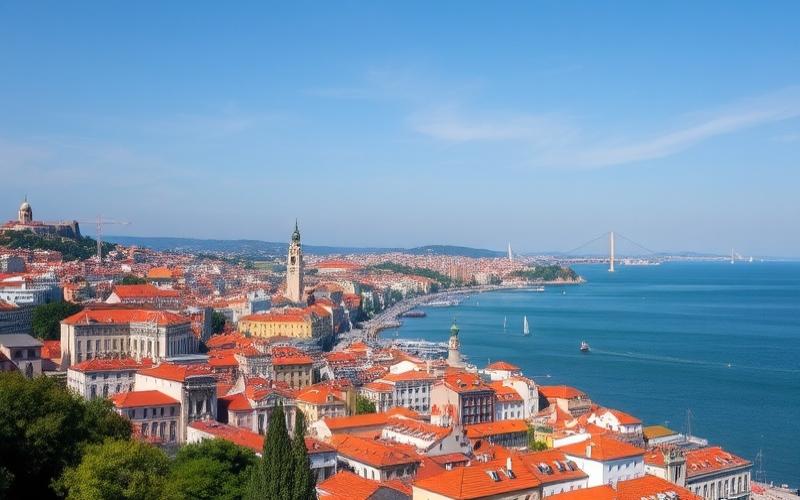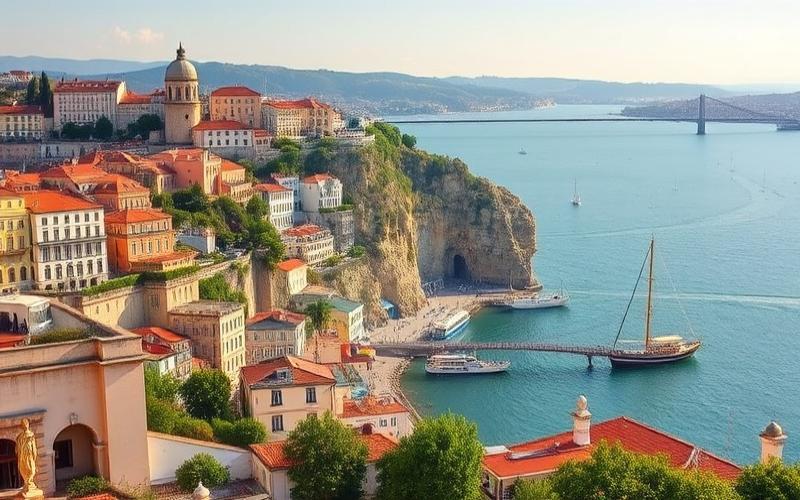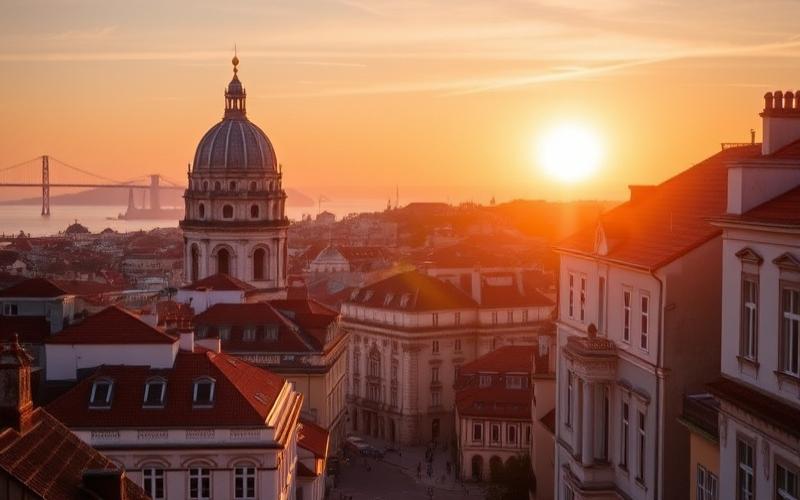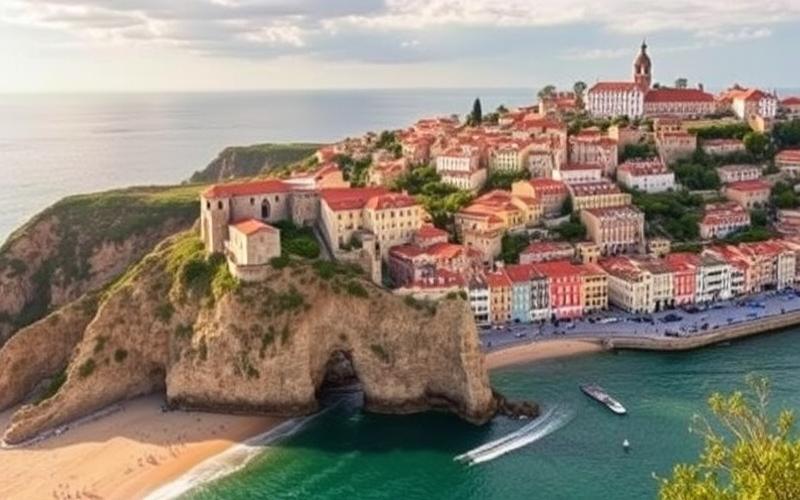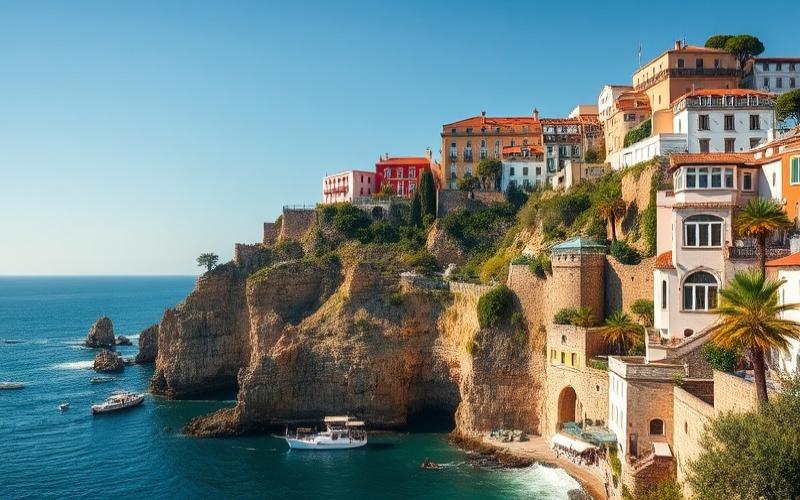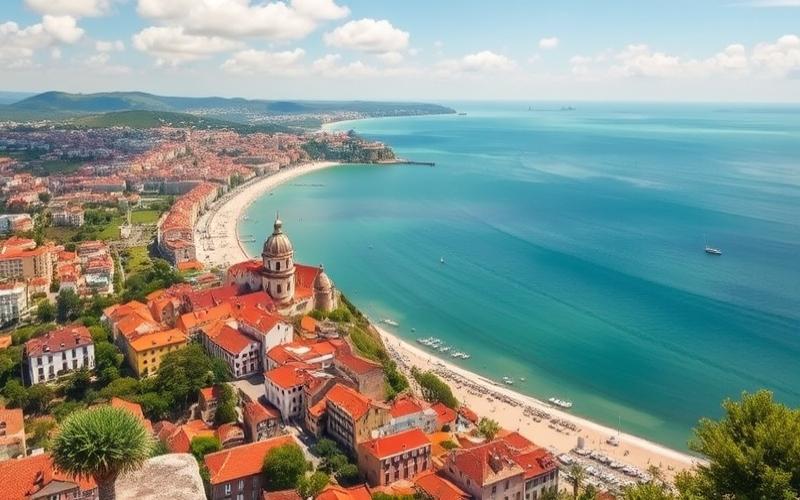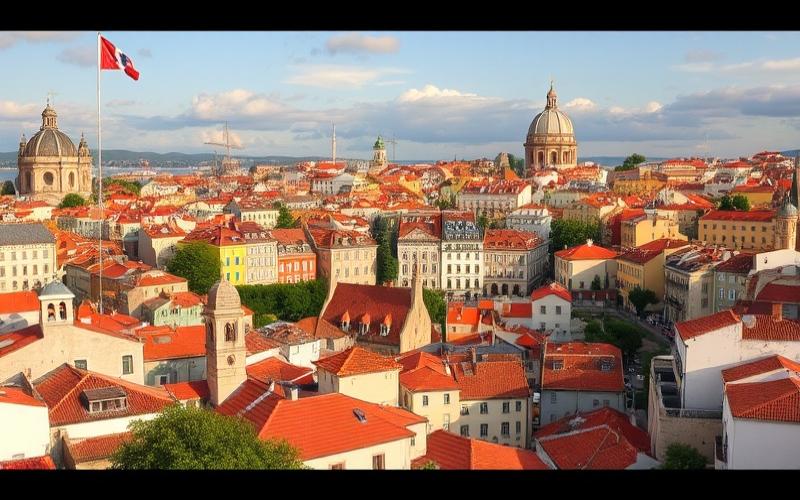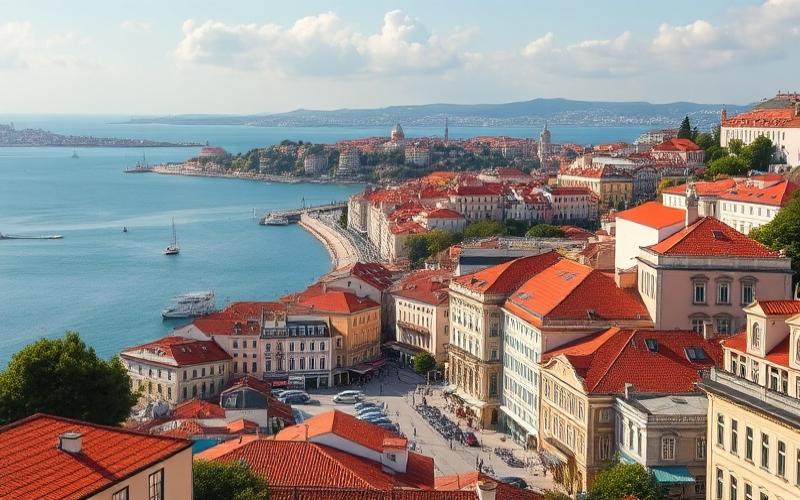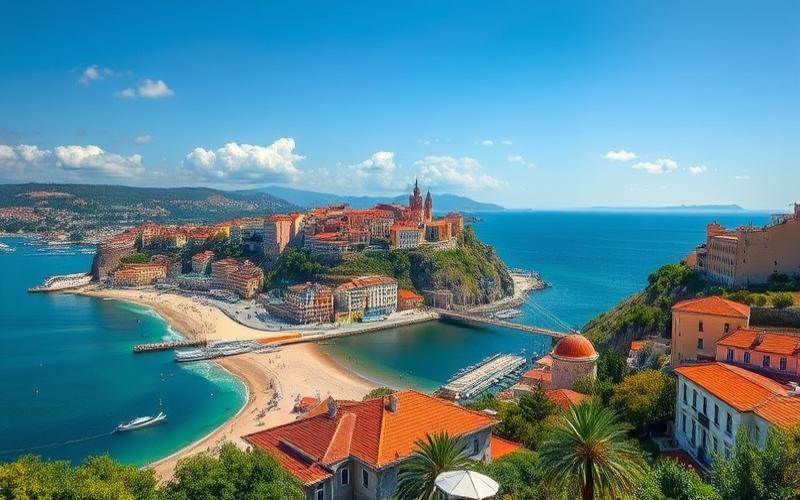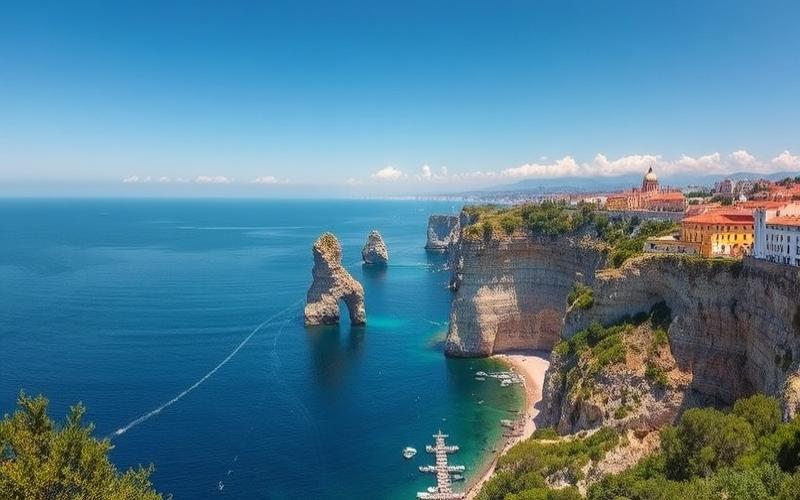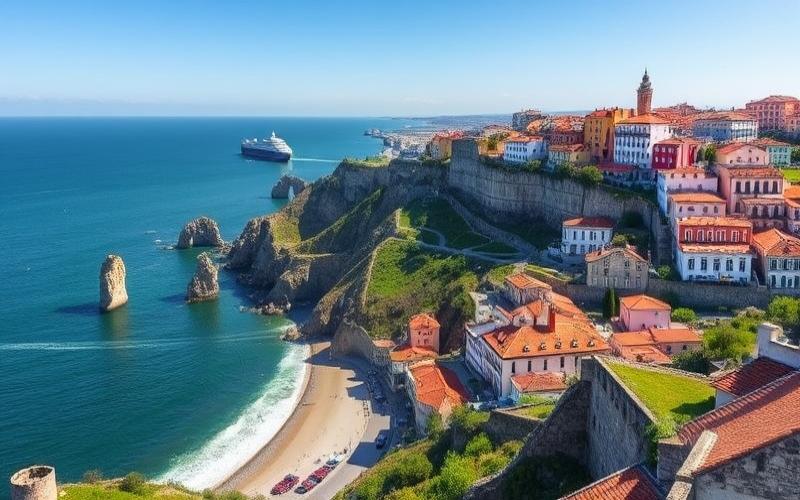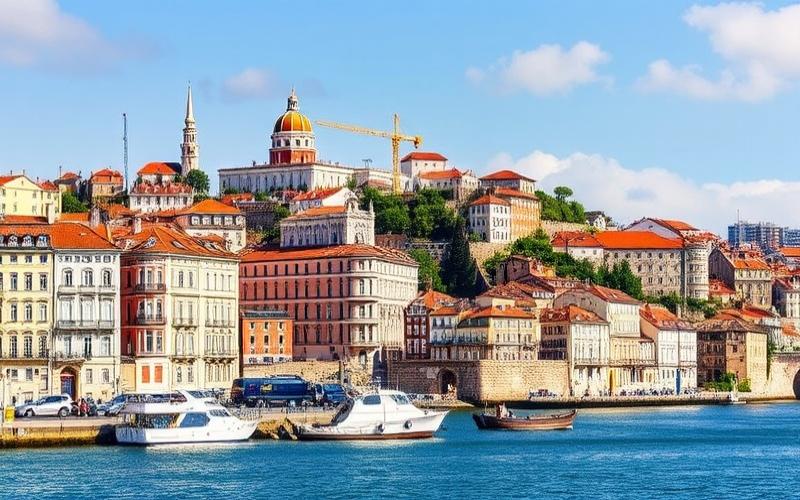
 Published on and written by Cyril Jarnias
Published on and written by Cyril Jarnias
Portugal, with its enchanting landscapes, rich historical heritage, and welcoming population, is attracting more and more expatriates from around the world. However, settling in a new country involves becoming familiar with a different culture. To facilitate your adaptation and avoid misunderstandings, it’s essential to understand the cultural nuances that make Portugal unique. In this article, we’ll explore the key aspects of Portuguese culture that every expatriate should know before packing their bags.
Portuguese Etiquette: Social Codes and Manners
Portuguese society, while modern and open, maintains certain traditions and social codes that are important to know for harmonious integration.
Formality in Professional Relationships
In Portugal, the professional world remains marked by a certain formality. In offices and businesses, it’s common to address colleagues and superiors using the titles “Senhor” (Mr.) or “Senhora” (Mrs.), followed by the last name. This practice demonstrates the respect and consideration that Portuguese people give to hierarchy and seniority.
The Importance of Family
Family holds a central place in Portuguese society. Family ties are strong and often extend beyond the nuclear family. It’s not uncommon to see multiple generations living under the same roof or close to each other. Family gatherings are frequent, especially during holidays and celebrations.
Sociability and Hospitality
Portuguese people are known for their warmth and hospitality. It’s common to be invited to friends’ or colleagues’ homes to share a meal. In these situations, it’s good manners to bring a small gift, such as a bottle of wine or dessert.
Relative Punctuality
While punctuality is appreciated in professional contexts, Portuguese people have a more relaxed approach to time in their social lives. It’s not uncommon for informal appointments to start slightly late, which may surprise expatriates accustomed to strict punctuality.
Good to Know:
Portuguese society values interpersonal relationships and sociability. Taking the time to build strong social connections will greatly facilitate your integration.
Traditions and Customs: A Dive into the Portuguese Soul
Portugal is a country rich in traditions and customs that rhythm daily life and celebrations throughout the year. Understanding these cultural aspects will allow you to better appreciate local life and fully participate in festivities.
Religious Holidays
Although Portugal is a secular country, religious holidays, particularly Catholic ones, hold an important place in the cultural calendar. Holy Week (Páscoa) and Christmas (Natal) are particularly festive periods, marked by processions, family meals, and specific traditions.
For example, at Christmas, many Portuguese families continue the tradition of “Consoada,” the Christmas Eve meal, where cod is often featured. After the meal, it’s common to attend midnight mass, called “Missa do Galo” (Rooster’s Mass).
Popular Festivals
Portugal is famous for its numerous festivals that animate cities and villages throughout the year. Among the most iconic are:
- The Festas de Lisboa in June, with the Feast of Saint Anthony on June 13th, where Lisbon’s streets come alive with parades, music, and grilled sardines.
- The São João in Porto on June 23rd, a joyful celebration where residents gently tap each other on the head with plastic hammers, a symbol of good fortune.
- The Iberian Mask Festival in Lisbon in May, a colorful celebration showcasing the masked traditions of the Iberian Peninsula.
Cuisine, a Pillar of Culture
Portuguese cuisine is a central element of the country’s culture. Meals are often moments of sharing and conviviality. Among the emblematic dishes are cod (bacalhau), prepared in multiple ways, grilled sardines, cozido à portuguesa (Portuguese stew), and pastéis de nata (custard tarts).
Wine also holds an important place in Portuguese culture, with renowned wine regions like Douro, Alentejo, and Vinho Verde.
Fado, the Musical Soul of Portugal
Fado, a typically Portuguese musical genre, is inscribed in UNESCO’s Intangible Cultural Heritage. This melancholic music, often performed in small cafes or restaurants called “casas de fado,” expresses the soul and deep emotions of the Portuguese people. Attending a fado performance is an essential cultural experience for understanding Portuguese sensibility.
Good to Know:
Participating in local festivities and showing interest in Portugal’s culinary and musical traditions will allow you to fully immerse yourself in the country’s culture and create bonds with the local population.
The Art of Portuguese Etiquette: Avoiding Cultural Faux Pas
To integrate harmoniously into Portuguese society, it’s important to be attentive to certain aspects of communication and behavior that could be misinterpreted. Here are some tips to avoid cultural faux pas and adopt proper practices.
Verbal and Non-Verbal Communication
Portuguese people appreciate direct but courteous communication. It’s important to maintain a polite and respectful tone, even in situations of disagreement. Eye contact is valued during conversations, as it’s perceived as a sign of attention and sincerity.
Regarding gestures, avoid pointing with your finger, as this can be considered impolite. Similarly, the “OK” sign formed with the thumb and index finger can be interpreted offensively in some regions of Portugal.
Greetings and Physical Proximity
Greetings in Portugal often involve physical contact. Among friends and acquaintances, it’s common to exchange cheek kisses (two kisses, one on each cheek) for women, while men typically shake hands or briefly hug. In a professional context, a firm handshake is appropriate.
It’s important to note that Portuguese people tend to maintain closer physical distance during conversations than in some Northern European or Anglo-Saxon cultures. Don’t be surprised if your conversation partner stands closer to you than you’re used to.
Respect for Traditions and Beliefs
Although Portugal is a modern and secular country, many people, particularly older generations, remain attached to Catholic traditions. Therefore, it’s important to show respect for religious symbols and practices, even if you don’t share them.
When visiting churches or religious monuments, be sure to dress appropriately, avoiding overly casual or revealing clothing.
Table Etiquette
Meals are important social moments in Portugal. Here are some etiquette rules to follow:
- Wait for the host to invite you to start eating before serving yourself.
- Keep your hands visible on the table, but not your elbows.
- It’s polite to taste all the dishes offered, even in small quantities.
- Compliment your host’s cooking – it’s a much-appreciated gesture.
Punctuality and Time Management
As mentioned earlier, punctuality in Portugal can be more flexible in social contexts. However, for professional or official appointments, it’s better to arrive on time. If you’re invited to dinner at friends’ homes, it’s generally acceptable to arrive slightly late (10-15 minutes), but no more.
Language Learning
Although many Portuguese people speak English, especially in large cities and tourist areas, making the effort to learn a few phrases in Portuguese will be greatly appreciated. This shows your interest in the local culture and will facilitate your daily interactions.
Good to Know:
Patience and open-mindedness are essential qualities for adapting to a new culture. Don’t hesitate to observe and politely ask for clarification if you’re unsure of the appropriate behavior in a given situation.
Moving to Portugal offers a unique opportunity to discover a rich and welcoming culture. By understanding and respecting local social norms, traditions, and customs, you’ll greatly facilitate your integration and enrich your expatriate experience.
Portugal is a country that values human relationships, conviviality, and sharing. By adopting an open and respectful attitude, you’ll quickly discover that cultural differences, far from being obstacles, are actually open doors to new perspectives and lasting friendships.
Remember that adapting to a new culture is a process that requires time and patience. Every interaction, every experience, whether positive or thought-provoking, will contribute to deepening your understanding of Portuguese culture and enriching your expatriate journey.
Disclaimer: The information provided on this website is for informational purposes only and does not constitute financial, legal, or professional advice. We encourage you to consult qualified experts before making any investment, real estate, or expatriation decisions. Although we strive to maintain up-to-date and accurate information, we do not guarantee the completeness, accuracy, or timeliness of the proposed content. As investment and expatriation involve risks, we disclaim any liability for potential losses or damages arising from the use of this site. Your use of this site confirms your acceptance of these terms and your understanding of the associated risks.



